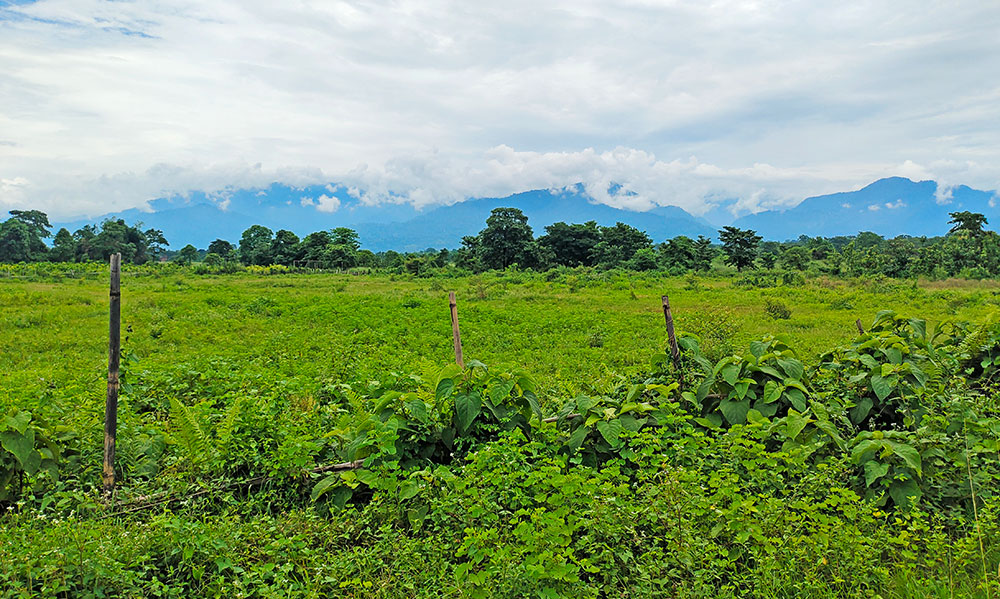
The once lush and productive paddy fields along the Indian border near Gelephu main town have remained fallow for over a decade due to the lack of a proper irrigation canal and disagreements among the landowners.
Since the establishment of Gelephu Thromde in 2010, thousands of acres of once thriving land, spanning from the Puranovasty at the border to Shetikhari, have now turned barren and overgrown with bushes.
According to the landowners, most of these lands were purchased by high-ranking and retired civil servants for residential and developmental purposes, opposing paddy cultivation.
A landowner said that the majority of the land purchasers were from places like Thimphu, Paro, and Haa, who were against paddy cultivation on their lands. “We felt completely helpless and were unable to continue the paddy cultivation.”
“During that time, getting labourers was not an issue as they were readily available from the neighbouring villages of India at a more affordable wage,” he added.
Phurpa Wangdi, a native of Trongsa living in Pelrithang Khamaed under Gelephu gewog, said that it is a sorry state of agriculture, as what was once a thriving land now turned completely barren.
He owns four acres and 42 decimal lands, with 40 decimal falling under the Thromde area. “The lands have been left unproductive, but we have to clear the bushes every year,” he said, adding that he pays an annual land tax of over Nu 4,000 for the land that comes under thromde.
“Since then, I stopped rice cultivation and now rely on livestock for my livelihood,” Phurpa Wangdi said. “In the past, I used to produce enough rice for my family, but now I have to rely on imports.”
“A decade ago, the thromde, at our request, supported us by digging an irrigation canal after the initial canal was washed away. However, the water could not irrigate due to a slope in the canal, which prevented the passage of water,” he said.
Today, this large irrigation canal, which once shared water from the fishery pond, remains like a water pond during monsoon along the road towards the Thromde sewerage, just a few meters east of Gelephu main town.
The initial irrigation canal, according to the landowners, served not only the local farmers but also irrigated water to the fields of Indian paddy growers in Dadgari. “The Indian paddy growers used to come here for the maintenance of the irrigation canal,” said another landowner.
Gopi Gurung, a 76-year-old landlord in Gelephu Throm said that the majority of the lands were sold to the outsiders given its proximity to the town, particularly after the development activities started taking place in Gelephu.
“I discontinued paddy cultivation about 13 years ago when I sold my two acres of my land to construct a house,” he said. “During that time, the entire land was actively cultivated.”
Also, this year, a vast wetland in Gelephu gewog decided to discontinue its paddy cultivation, in addition to those who had already abandoned paddy cultivation in the past years.
Yonten Norbu from Pelrithang Khatoed, who stopped paddy cultivation on two acres of land, said that the acute shortage of water in addition to the damage caused by wild elephants are the main reasons contributing to the growing number of fallow lands.












